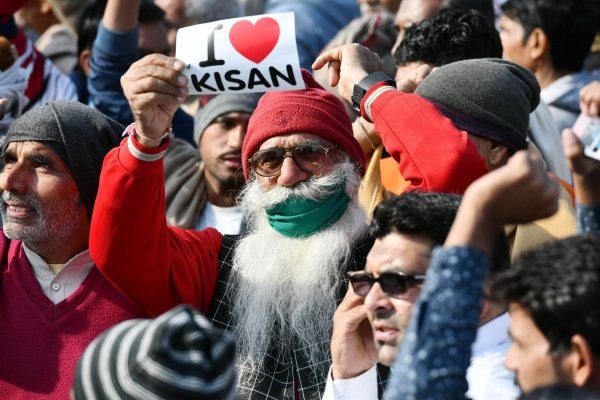By 1999, India was invited to be a part of it, making it the Iran-Pakistan-India (IPI) pipeline that was to extend up to New Delhi. With barely any progress, India withdrew itself from this project in 2009
Dr. Shrabana Barua
On 23 February 2024, the Cabinet Committee on Energy (CCoE) of the Interim Government of Pakistan approved construction work on the Iran-Pakistan (IP) gas pipeline project. With Shehbaz Sharif back to power as the Prime Minister, the project has found further impetus. On 25 March, as the head of the CCoE, Sharif issued directives to immediately constitute an inter-ministerial committee to expediate the IP project. This comes after a decade-long delay in the completion of the 2775-kilometre pipeline, 781-kilometre of the which lies within Pakistan. While Iran has completed its section of the pipeline, Pakistan has been unable to start construction of the project despite repeated commitment to it. These delays have been attributed to ‘external pressure’ from the West. The United States (US), United Nations (UN), European Union (EU) and others-imposed sanctions on Iran over its pursuit of nuclear activities. The question then arises as to why Pakistan is going ahead with the construction of the IP gas pipeline now, when such pressures continue to exist? The timing of Islamabad’s approval and the geopolitical complications surrounding the project merit attention.
A background on the IP pipeline
The IP gas pipeline was first agreed upon as early as 1995, when a preliminary agreement was signed between the two countries. It is a project that is meant to transport gas from the South Paras gas field in Iran to Sindh (Gwadar and Nawabshah) in Pakistan. By 1999, India was invited to be a part of it, making it the Iran-Pakistan-India (IPI) pipeline that was to extend up to New Delhi. With barely any progress, India withdrew itself from this project in 2009. Iran had also hoped China and Bangladesh would be associated with the project, but without success.
In 2010, both Iran and Pakistan signed an agreement at Ankara, to complete their respective sections of the pipeline by 2014. In 2011, Iran announced that its section of the pipeline was nearing completion. Pakistan had not begun work on it, citing lack of funds as a reason for delay. Tehran offered to provide $500 million as loan to Islamabad for the pipeline, that was estimated to cost $1.5 billion for Pakistan at the time. The total cost of the pipeline is $7 billion. Islamabad was aware that it had to pay a penalty of one million dollar per day, if it fails to complete the project on time. Due to a fear of penalty, then President, Asif Ali Zardari, inaugurated the construction work of the pipeline with his Iranian counterpart in March 2013, and, then Prime Minister Nawaz Sharif promised to fulfil Pakistan’s commitment on the same.
But despite these assurances, by 2014, the IP pipeline project not only did not finish on time but went a step backward as Pakistan contemplated shelving the project and Iran withdrew the proposed loan to Pakistan.
In 2019, Iran notified Pakistan of legal action if Islamabad abandoned the project. After going back and forth on the deal, and still unable to start the project, Pakistan issued a Force Majeure notice to Iran under the Gas Sales and Purchase Agreement (GSPA) in June 2023. Iran refuted this notice, but the GSPA was amended to allow Pakistan five more years to construct the pipeline. Meanwhile, the penalty that Pakistan had to pay Iran accumulated to $18 billion by 2023, which was notified to Pakistan’s Publics Account Committee.

With the IP gas pipeline being touted as a pertinent project equipped to lessen the burden of a deepening energy crisis in Pakistan, the CCoE approved the first phase of the pipeline’s construction on 23 February this year. The 80-kilometre stretch is to be financed by the Gas Infrastructure Development Cess (GIDC) and executed by Pakistan’s Interstate Gas Systems (Private) Limited (ISGS).
The geopolitics behind the delays
The delays in the IP pipeline are attributed to sanctions imposed on Iran. The United Nations Security Council had imposed various sanctions on Iran through six resolutions over the years, which were all lifted by October 2023. Additionally, the US sanctions on Iran not only relate to Tehran’s nuclear programme, but also the violation of human rights and alleged abetment to terror activities. Many of these sanctions are backed by the EU and continue to remain. Reportedly, in 2013, the US warned Pakistan to quit the IP pipeline project if it wanted to avoid economic sanctions. Instead, the US suggested building a Liquefied Natural Gas (LNG) terminal that Washington was willing to help finance. Further, alternate projects have been suggested as more suitable for Pakistan, which Islamabad stated that it would be exploring. It may be noted that Pakistan has been increasing its LNG imports from Qatar.
The delays in constructing the IP pipeline are also linked to financial assistance and loans that Pakistan has been receiving from those that opposed Islamabad’s project with Tehran. For instance, Pakistan’s economy has been in the doldrums and it has depended heavily on the International Monetary Fund (IMF) for money. At such a time, challenging the Western position on Iran meant problems for Pakistan. In June 2023, Pakistan conveyed that it would be unable to begin work on the IP pipeline. It may be recalled that at the time, Pakistan was negotiating with the IMF to receive a $3 billion loan via a Stand-By Arrangement (SBA). Opposition to Islamabad’s project with Iran was also visible from Saudi Arabia as well as Qatar. Both countries have assisted Pakistan with funds to help it survive its economic crisis, while each has had its differences with Iran that exacerbate the geopolitical tensions in the region.
Why proceed now?
Three main reasons can be identified for Pakistan to go ahead with the construction of the IP now. First, the $18 billion fine that Pakistan has accrued over the IP project is too much for Islamabad to pay. Pakistan was compelled to delay the project due to the pending loans from IMF, largely led by the US. Pakistan’s economy continues to be in the doldrums and the ninth tranche of the IMF’s Extended Facility Fund is currently under negotiation. However, Islamabad’s compulsions are slightly different now. It managed to receive loans from the IMF last year and hoping to get the next round of loans this year. On the other hand, with a new government in place, Islamabad is more worried about its looming energy crisis. This is visible from the fact that Shehbaz Sharif himself is heading the CCoE and issuing directives to better the situation.
The energy needs of the country are only growing and import bills are rising, along with prices of basic commodities. Once the IP pipeline is functional, it is expected to provide Pakistan with 750 million cubic feet daily of cheap gas, which is equivalent to more than seven LNG cargoes per month. The money for the pipeline is available with the GIDC, waiting to be released. Therefore, any further delay in the construction of the pipeline is detrimental to Pakistan’s interest. This message has also been conveyed to the US.
Second, while Islamabad is reportedly seeking a waiver from sanctions by the US in its collaboration with Iran, it is also having to negotiate with Tehran over various issues. Iran and Pakistan had a rough start to the year. Iran launched missile attacks on the militant group, Jaish al-Adl, in Pakistan’s Balochistan province. With the Israel-Hamas war at the backdrop and similar attacks into Iraq and Syria by Iran, Pakistan retaliated with counter-strikes and recalled its envoy from Iran. Though the situation soon returned to normalcy, by giving a green signal to the IP pipeline, Pakistan hopes to continue to smoothen its ties with Iran. Further, Iran has provided a 180-day extension for Pakistan to complete the IP project by September 2024. This means Iran is more willing to compromise with Pakistan than drag Islamabad to the International Court of Arbitration. This appears to be a window for Pakistan to get the IP pipeline back on track.
Third, it was the Interim Government led by Anwaar-ul-Haq Kakar that gave the green signal for work to commence on the IP pipeline. It is said that Kakar, who hails from Balochistan (and belongs to Balochistan Awami Party), understands that the gas pipeline with neighboring Iran is a crucial project and better judges the importance of such a deal. By the time Kakar’s government took the decision on the pipeline, it was also quite clear that a coalition led by the Sharifs and Zardari would soon come to power at the center, the same combination that had inaugurated and promoted the IP pipeline in 2013. Last time, the project was abandoned despite the commitment to it due to geopolitical reasons. This time, with Shehbaz Sharif leading the federal coalition as the PM and Asif Ali Zardari back to power as the President, its completion is being projected as more likely.
Conclusion
Pakistan is trying to find ways to come out of the civil unrest that engulfed the country last year. For this, it is important for Islamabad to help mitigate an energy crisis, revive its economy and manage its relations with its neighbors and allies. Going ahead with the IP pipeline deal is expected to help in this direction. No official statements have been made on this development by those who have stood in opposition to the IP deal between Iran and Pakistan. Yet, Pakistan will have to be diplomatically dexterous to be able to truly benefit from its deal with Iran in the long run.
Dr Shrabana Barua is a Research Fellow at the Indian Council of World Affairs. The views expressed are personal.
This article first appeared in the Viewpoint section of the website (www.icwa.in) of Indian Council of World Affairs, New Delhi


























